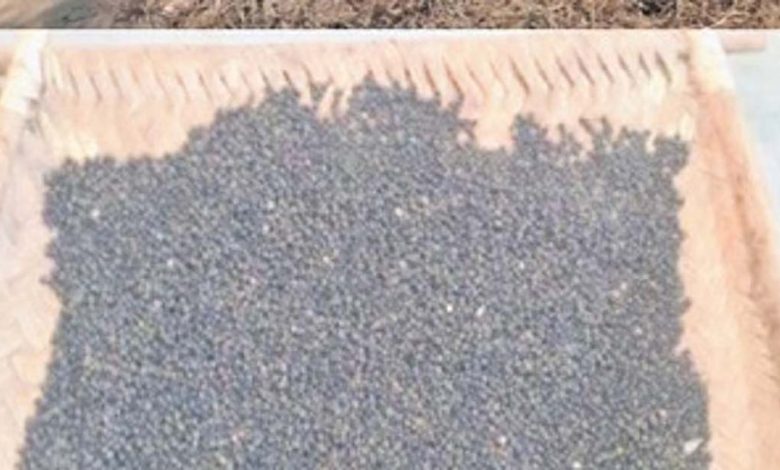GI tag demand for Deogarh Kala Muga gains momentum

DEOGARH: Once confined to traditional kitchens and rituals, a local pulse variety of Deogarh is witnessing a welcome resurgence. The ‘Deogarh Kala Muga’ – a distinctive whole black gram indigenous to the district – is now drawing increased attention from both farmers and food enthusiasts, prompting calls for greater recognition and protection, possibly through a Geographical Indication (GI) tag.
Known for its dark hue and earthy aroma, Deogarh Kala Muga is a local variety of black gram that has been cultivated in the region since ages. Despite its resemblance to the common green gram, the Kala Muga’s jet-black seeds and unique flavour, especially the aroma, set it apart from other varieties. Traditionally grown in the rabi season, the pulse is now being cultivated across all three blocks of Deogarh, Barkote, Tileibani and Reamal, particularly in rice fallow lands that otherwise remain unused after the kharif harvest.
Originating from Kundapitha area of Barkote and Subarnapali in Tileibani, Deogarh Kala Muga has gradually spread throughout the district. Its popularity is rooted not only in its agronomic benefits – resistance to pests and diseases, short crop duration of 75-80 days, and productivity ranging from 2.5 to 4.6 quintal per hectare, but also deep cultural significance.
Subject matter specialist, Agronomy at Deogarh Krishi Vigyan Kendra Sabyasachi Sahoo said Kala Muga is naturally resistant to pests and diseases, requires less water and is well-suited for rice fallow lands. It also sells at an additional Rs 20 to Rs 30 compared to other grams which is why its cultivation has steadily expanded across the district.





